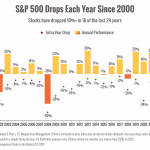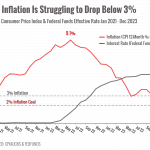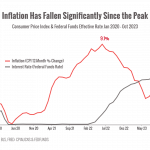Retiring in a Bear Market
 AARP recently reached out to our firm to get advice on what people should do if they are going to end up retiring in a bear market. Here are our leading thoughts that we shared:
AARP recently reached out to our firm to get advice on what people should do if they are going to end up retiring in a bear market. Here are our leading thoughts that we shared:
- First, let’s address the premise that you’re retiring into a bear market because you may in fact be jumping the gun! There are always talking heads in the financial media warning of an imminent bear attack. Pessimism sells and being a pessimist makes you look smart. Just look to the recent past. Every single year for the past five plus years “pundits” have threatened that a bear market is just around the corner. Meanwhile, the market has pushed onward, just like it does a majority of the time, and delivered a fantastic run up in value.
- Don’t start planning for a bear market after it occurs. Since timing the market is essentially impossible, you want to structure your investments to be a stable ride whether it’s an up or down market. In fact, if you have a properly diversified portfolio with a robust mixture of stocks and bonds, you’ve got the all-weather portfolio that you need. Technical note — high quality intermediate-term bonds are your best option for preserving capital during an economic disaster.
- What about your attitude and, more importantly, your behavior? Prepare yourself psychologically to keep calm and carry on regardless of the investment environment. Getting your attitude and expectations in check will decrease the chances of making an unforced error and blowing up your portfolio. Have a plan and stick with it. If you need help, don’t hesitate for a moment to hire a financial coach because this is the most important game of your life.
- When you’re actually in a bear market, you’ll know it. By convention, market values will be off more than 20% and everyone’s attitude will be gloomy. While the market is down there are concrete steps that you can take to avoid straining your retirement nest egg and denting its future potential.
- What you want to do is avoid withdrawing from your investments as much as possible.
- delay major expenditures
- temporarily cut back on your travel and other discretionary spending
- draw down on your cash reserves to provide temporary retirement income
- if you have to draw from you portfolio, preferentially sell your bonds so stocks don’t get sold after a crash
- even consider a part-time job or consulting gig to supplement income
- The less you draw from your portfolio during the bear, the greater the spring back will be in its value when the market recovers. Historically, bears hit fast and then the market recovers quickly so you shouldn’t have to take these emergency countermeasures for too long.
- Another technical note — don’t forget to continue to annually rebalance your portfolio even in a bear market. Those intermediate-term bonds should be up in value which will provide you dry powder to buy stocks when stocks are on sale at temporarily diminished prices.







